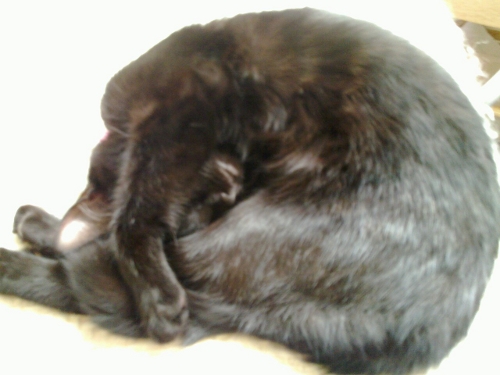
The web is free to roam, much like a cat should be. The web was created for collaboration, to share news and to share information etc. Paywalls will fail (see here), because there will always be, and should always be, a free alternative for the web. This is of course, my opinion, but I hope to have a worthy opinion because I’ve worked on the web for many years and have seen it grow in many ways. The web is free.
- When organisations first started publishing on the web they treated it very much as a way to advertise in exactly the same way as they can advertise in a printed magazine or newspaper. With a big heavy image, with hardly any detail whatsoever. This wasn’t great! It meant that the web was not a web.
- Luckily search engines required text and links in order for sites to be findable. So corporate websites have been slowly seeing the light since then, and have been improving their sites with text, links and search engine optimisation.
- Then came the idea of web connectivity. Connecting with your friends, family and business contacts over the web. This was often, but not always, using methods which were free. The Social Web was born! First Yahoo Groups popped up, and LiveJournal and then things like Facebook, MySpace and LinkedIn. Blogs became popular, and then microblogging became even more popular. Wikipedia releases free and open articles about millions of subjects.
- Then, in the background to all of the above, we have people making web data real workable data. People and research groups began working on things such as XML and webservice APIs, RDF and the Semantic Web, Microformats, DataPortability, OpenID, OAuth and recently WebID. The Data Boom begins to happen! With Governments, Universities, Public Organisations and Private Companies start releasing real and useful data.
- We also have people working on making the web more ambient, and more integrated with other things and physical life itself. Just look at Augmented Reality, Mobile Banking, WebGL, Linux Phones (e.g. Maemo and Android) and web-based operating systems (such as Google Chrome OS).
So where are we headed next? It’s certainly not News Paywalls! That would be more than one step backwards, a step back to number 1 above. There is room for paywalling out there, e.g. for genuinely useful functionality or highly bespoke reporting, but certainly not for news. It just feels wrong. I say that web users such as us need to wake up and say “no” to journalism paywalls, and The Times needs to wake up and understand the web.
Liberté! Egalité! Fraternité!
p.s. the cats can stay sleeping for a bit


No comments yet.
Leave a comment